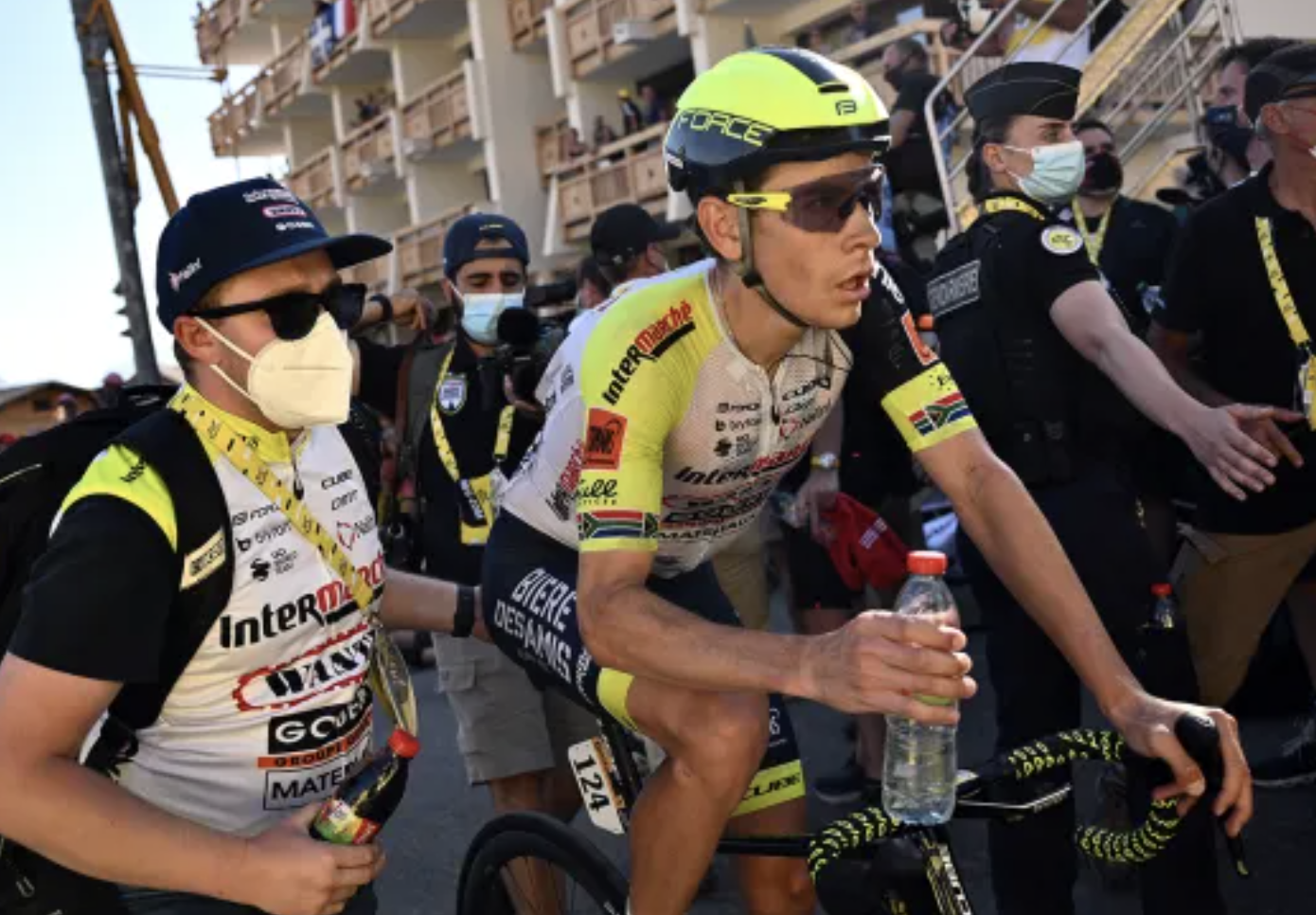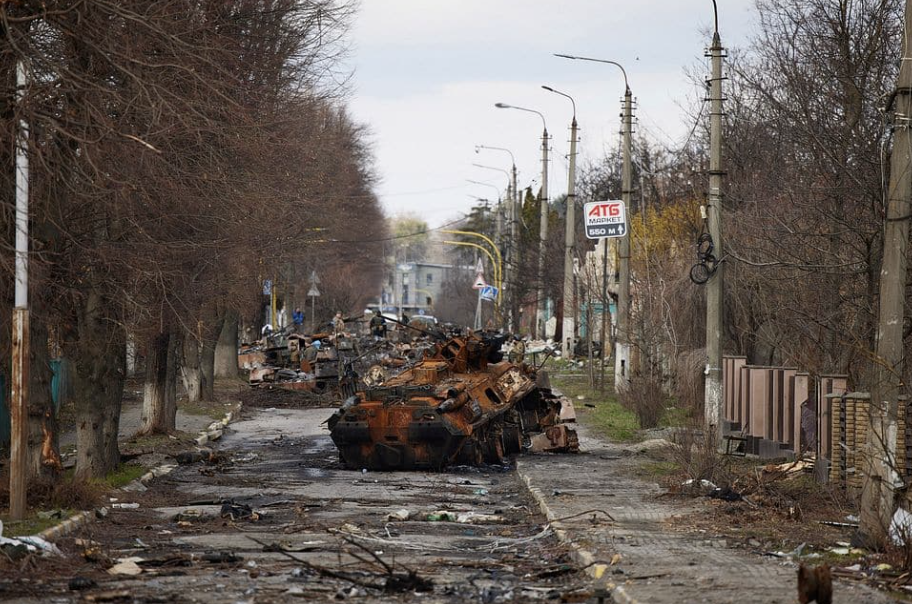News
Louis Meintjes: No Easy Way Up
Louis Meintjes is the sole South African in this year’s Vuelta a España. A native of Rustenburg, he is a veteran of 17 previous Grand Tours, with best-place finishes of seventh in the Tour de France (2022) and tenth in the Vuelta (2015).

'Long enough, in pursuing cattle among the desert mountains of Lusitania and Celtiberia,” said Hannibal Barca, as recorded by Livy, “you have seen no emolument from so many toils and dangers.”
The great Carthaginian general was rousing his troops before the Battle of Ticinus on their march to Rome in 218 BC. The Romans were routed in a display of tactical brilliance, Hannibal proving once more his ability to plan to his and the enemy’s strengths and weaknesses.
Allied to his diplomacy in drawing the rulers of Roman cities into his military alliance, and the skill of his heterogeneous army comprising mostly North Africans and Celts, Hannibal successfully occupied most of southern Italy for 15 years.
Although he won battles at Ticinus, Trebia, Lake Trasimene and famously at Cannae, Hannibal ultimately lost the war, as is so often the case, worn down by the Roman tactics of attrition, a counter-attack in North Africa against his home base, and defeats in Hispania. He committed suicide by taking poison in Bithynia in modern-day Turkey, where he was on the run after being betrayed to the Romans.
By “Celtiberia”, Hannibal was referring to the contemporary autonomous community of Galicia in northwest Spain, the tip of Iberia that today faces the US across the Atlantic and was once, as the name suggests, populated by Celts.
Fast-forward more than two millennia, and Galicia is a remarkable modern success story, built on a combination of infrastructure, industrialisation and diversification from its traditional sectors of agriculture, fishing and tourism.
Its modern reform path was led by Manuel Fraga, a former minister in the Franco dictatorship, which had neglected Galicia despite — or perhaps because of — its status as Franco’s birthplace. Not for nothing is it said that when you meet a Galician on a staircase, they are so diplomatic you never know whether they are going up or down.
The region is today a leading producer and manufacturer of cars, fashion goods and ships. The role of tourism in this economic revolution is epitomised by the growth in popularity of the Camino de Santiago, the almost 800km walking pilgrimage from the border with France to the tomb of St James in the eponymous city of Santiago, the capital of Galicia.
Hannibal’s exhortation bemoaning the mountains of Galicia hints at why the Vuelta a España, the last of the annual Grand Tours after the Giro d’ Italia and Tour de France, has visited the region in 2024.
Hannibal might also have appreciated the logistical feat of running the Vuelta: 21 stages over 3,280km; 870 support vehicles; 60 mounted policemen; more than 9km (four tonnes) of barriers and 250 advertising banners per stage, which take five hours to erect every day; and a global audience of 4.4 million television viewers per stage.
The general may also have related to the tenacity and fighting spirit of its gladiators, comprising 184 riders from 23 teams. These are men — the women’s Vuelta took place over eight stages in May — for whom nothing comes easily.
A native of Rustenburg
Louis Meintjes is the sole South African in this year’s Vuelta. A native of Rustenburg, he is a veteran of 17 previous Grand Tours, with best-place finishes of seventh in the Tour de France (2022) and tenth in the Vuelta (2015).
The son of a civil engineer and a nurse, he did not, he says, come from a particularly sporty, “typically South African family”, even though “we followed cricket and rugby”.
But after displaying his cycling prowess at local events, and with some financial support from Cycling South Africa, he competed in Belgium as a 16-year-old junior.
“It took me some time to realise that one can actually make a career out of it,” he said, recalling that his path was made more difficult by the intricacies of acquiring work permits.
While Meintjies admits to being “quite removed” from the SA cycling scene, he believes the quality of road racing in the country has declined.
“The financial side is a big limiting factor. If there is not support from a national federation, unfortunately, or if your parents don’t have a lot of free cash, you are not going to get that opportunity, because it’s quite expensive with the exchange rate, having to get a flight, and have someone sustain you [in Europe]”.
He cuts an unassuming, even shy, figure — a far cry from the elbows-out aggression often on display in the Grand Tours.
‘Much more pressure’
The sport has changed in several ways, the pressures of sponsors and the level of aggression in the peloton among them.
“There is much more pressure to ride as a little unit in the bunch,” he says, since “everyone wants to prove to the sponsor that they sit together and work together.”
The role of the team and its ambitions and overall plan also shape the riders’ choices about when to make a break, with personal ambition subsumed by the team’s.
“The general age of the riders has become a little bit younger,” he reflects. “When I started out, there were the clear leaders, the older guys in the peloton. When they spoke, someone would listen. Whereas now it is a free-for-all all; there is not the same kind of respect.”
The result: “A lot of people race like this is [their] last year, so they don’t really care to make enemies. Whereas in the past a lot of people had a long-term approach, that ‘since I am going to be doing this for the next 10 years, it’s probably good not to get a bad reputation’.
“Now … you try to win every small game you have. If it means pushing someone out the way, so be it.”
To make it at this level, there is a need for steel, not least the ability to dig deep. The strain on the faces of pro cyclists up the steep ascents on the Vuelta, this year climbing 59,000m over 42 mountain passes, tells its own story of focus over pain. With improved technology has come better results, but also more pressure.
“Everything is much more analysed,” says Meintjies. “The wealth of information is much more freely available. When I was starting out … putting in the effort to do the research … was a really big advantage. Whereas now everything gets spoon-fed to the riders.”
Before the advent of widespread systems that detail the routes, he would study the GPS files of the routes to gain an advantage on the “crucial points” in the route.

The same technological optimisation applies to fuelling and modern equipment, which has increased the overall speed.
“For a smaller rider like me, on the flats, I can really feel I have to pay a lot more attention, and have way fewer possibilities on the flats now as we are racing a few Ks an hour faster.”
Immense dedication
In 2022, Meintjes won his first Grand Tour stage on the Vuelta — the super-steep Les Praeres, with its 13.7% gradient over the last 4km with a maximum of 24%.
It is a sport of immense dedication. In the past year, he trained for more than 980 hours, with nearly 29,000km cycled and 485,502m climbed. It’s an immense commitment, even for a professional athlete, particularly when there is no guarantee of results.
The toughest part of the sport is the unpredictable reward-to-effort ratio.
“You are working hard and sacrificing a lot; you want some kind of reward for it. You won’t be doing it unless you get something from it at some point. Sometimes you are training for months, and you just never get that feeling that you are getting into good shape.
“It gets quite frustrating, and you start questioning yourself and feel that you are fighting a losing battle. Basically, you hope that your body responds in a good way to all the training and work and that it all comes together. Sometimes it does and sometimes it doesn’t.
“Over the years, I have learnt that there is no constant. What you did last year that worked, might not work this year. There is always some uncertainty.”
And if he knew when he started what he knows today, how might he change things?
“Maybe take it a bit less seriously at points,” he smiles. “Maybe if you took an easier, more sustainable approach,” he reflects, “you might come further in the long run.
“It’s very important to keep a good group of people around you, because there are always going to be tough times. When everything is going good, you always have a lot of friends and people supporting you. But when it gets hard, you see who the real friends are.” This is especially important for Meintjies, being based in Andorra, Spain, a long way from home.
Stamina, both mental and physical, is critical to success in any sport, especially one of the duration and intensity of the Grand Tours. Meet Louis Meintjes.
This article originally appeared on the Daily Maverick


